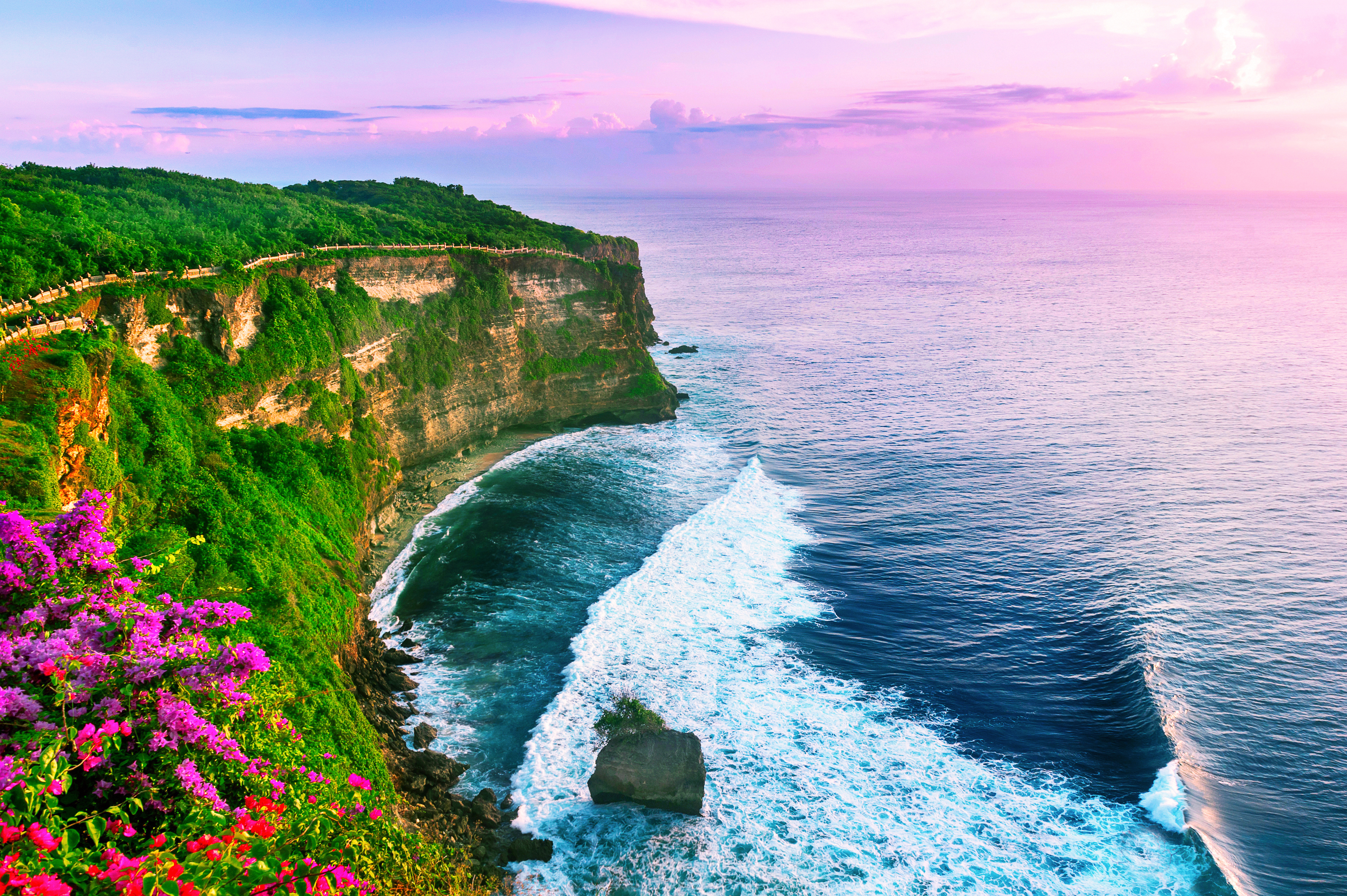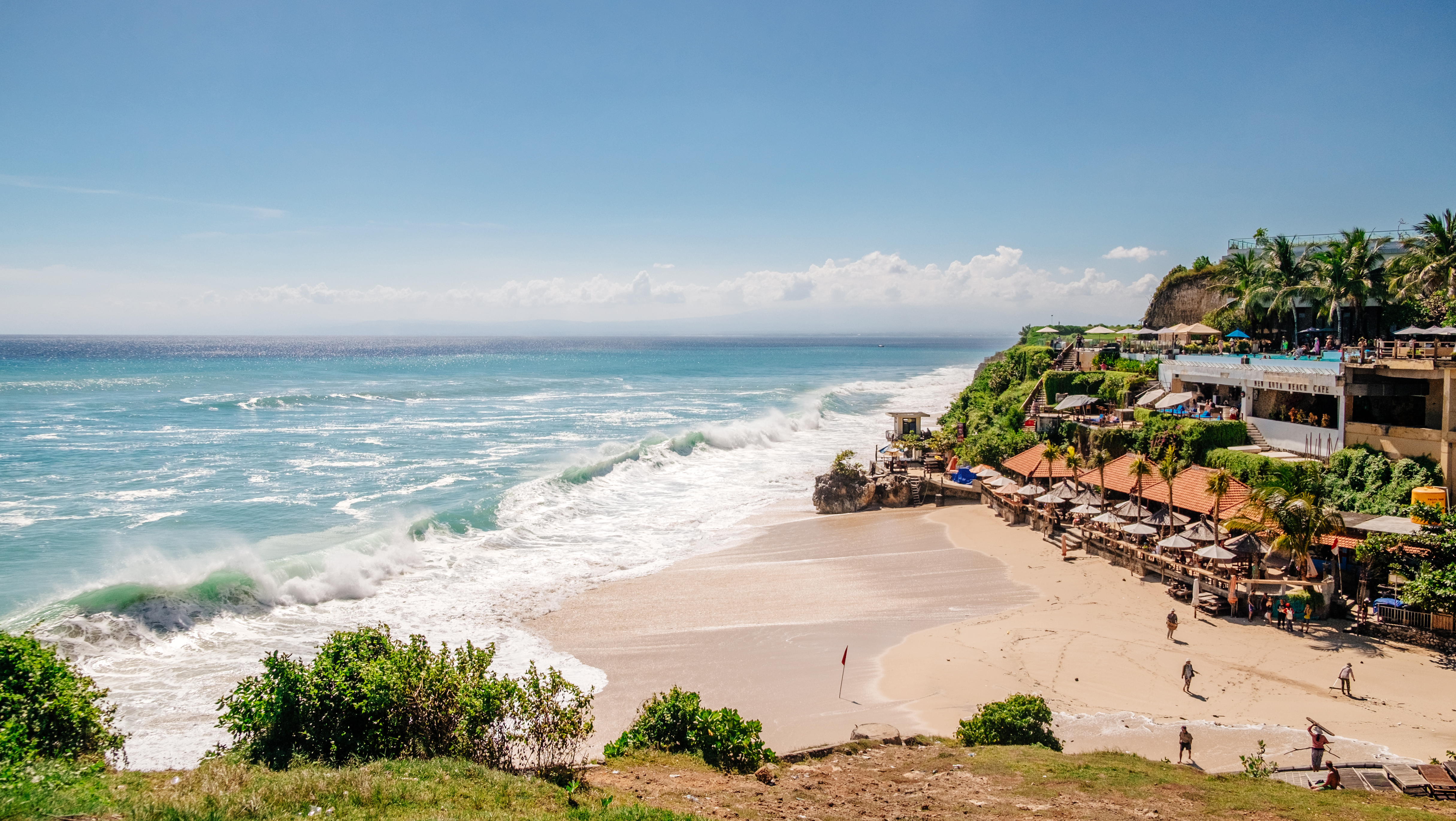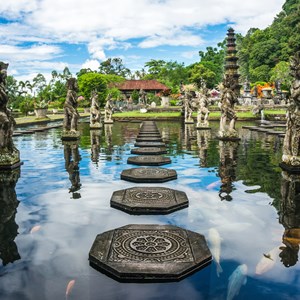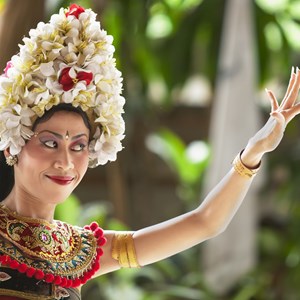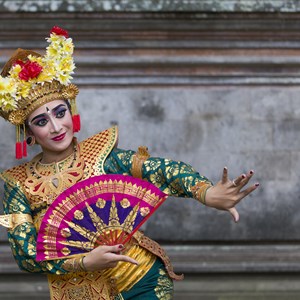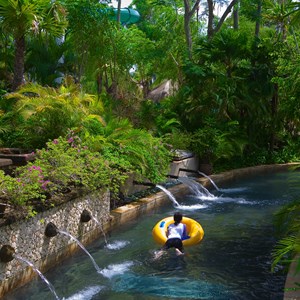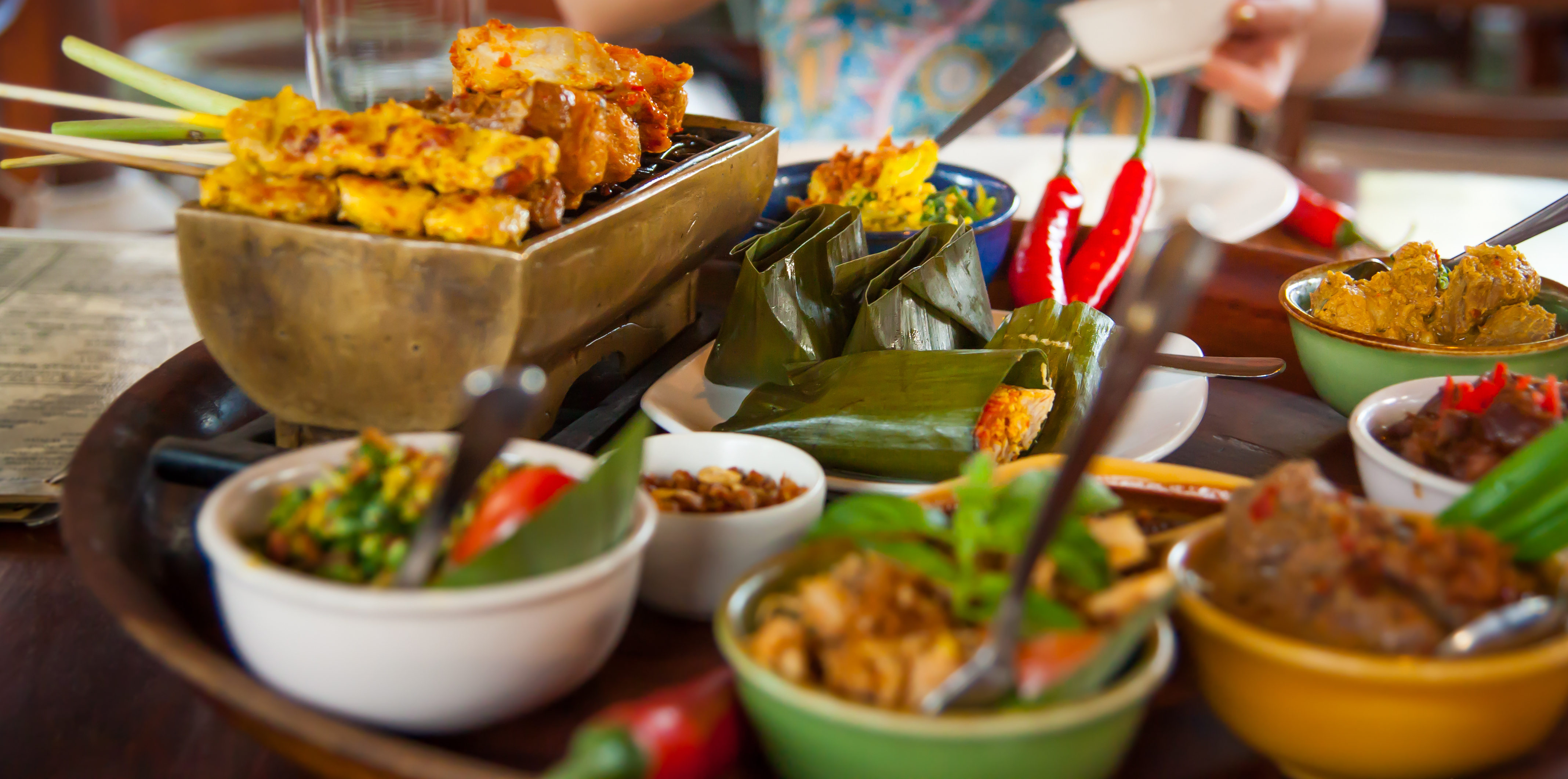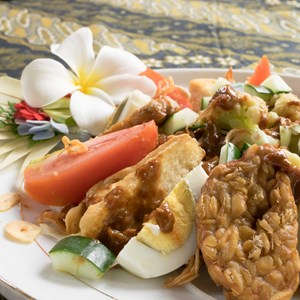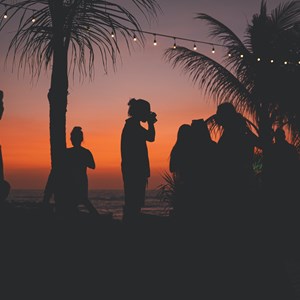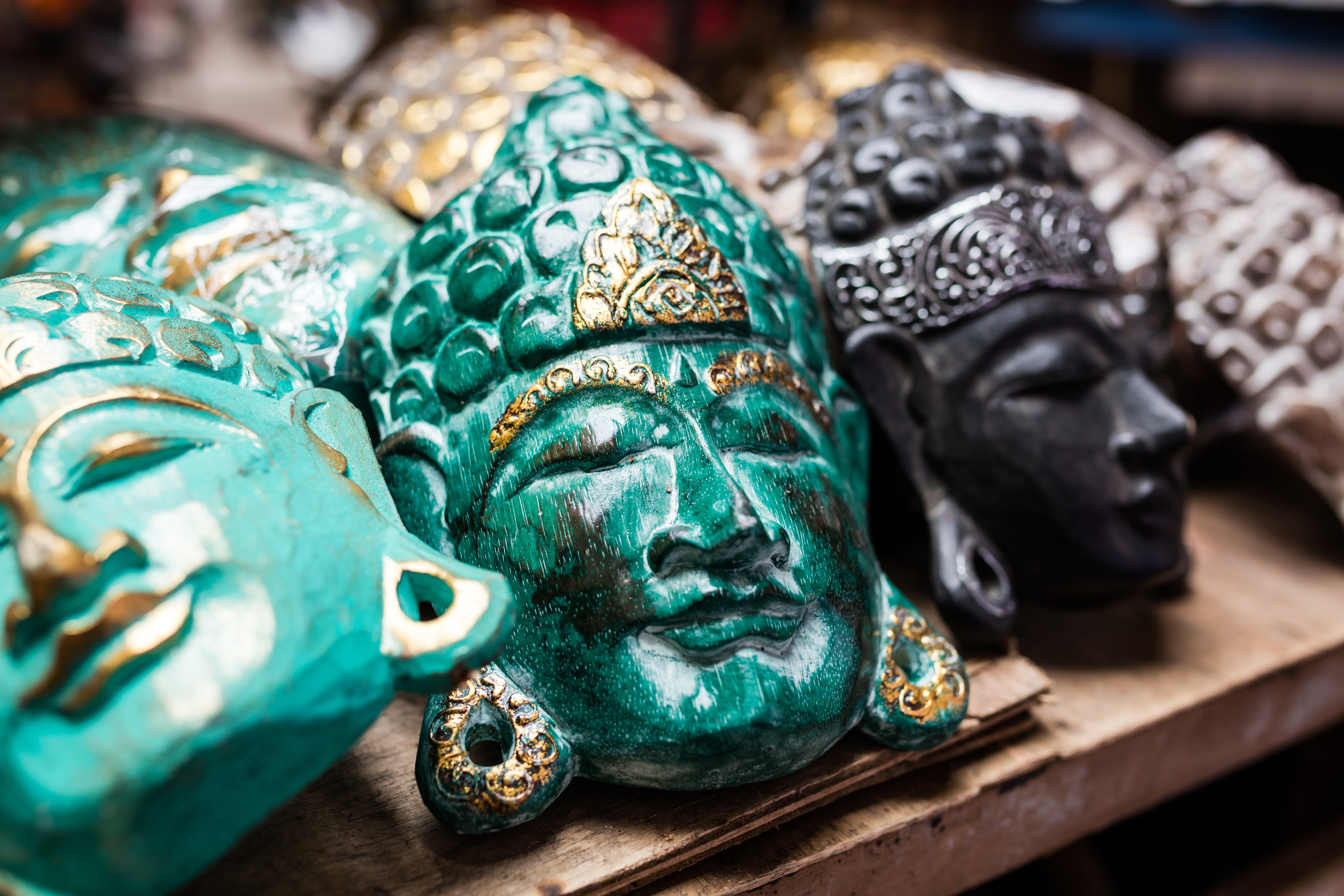

Bali's breathtakingly beautiful scenery makes it easy to just settle for the imaginary cliche of the island as a tropical paradise and nothing more. But behind the luxury resorts, picture-perfect rice fields, and idyllic beaches lies a rich culture, steeped in tradition and spirituality, and one of the friendliest and most welcoming places you're likely to find anywhere. Dare to go beyond the comforts of the resort areas to truly explore all the island has to offer and let yourself be rewarded with memories to last a lifetime.
The Island
Bali is more than just a tropical holiday hotspot—it's an island rich in tradition, culture, and contrasts. Once a sleepy Hindu kingdom known for its rice farming and rituals, Bali began welcoming international visitors in the early 20th century and has since evolved into one of Southeast Asia’s most beloved destinations.
Most first-time visitors gravitate toward the island’s southern coast—Kuta, Nusa Dua, and Seminyak—famous for golden beaches, upscale resorts, buzzing restaurants, and a vibrant nightlife scene. This is the heart of Bali’s modern tourism.
Nearby lies Denpasar, the island’s regional capital. It offers a sharp contrast to Bali’s laid-back beach towns and quiet inland villages, with busy streets, shopping centres, and local markets sitting alongside Hindu temples and traditional compounds.
Head north or inland and you’ll find a slower pace and a different kind of beauty. Ubud is the cultural heart of Bali—set among lush hills and rice terraces, it's known for its arts scene, yoga studios, craft markets, and spiritual retreats.
Beyond these hubs, the rest of the island unfolds with variety.
The West is home to the protected wilderness of West Bali National Park. The quieter north coast offers black-sand beaches and dolphin spotting, while the east features sleepy fishing villages and dramatic volcanoes. Off the southeast coast, the islands of Nusa Penida and Nusa Lembongan lure divers and snorkellers with their crystal-clear waters and marine life.
Wherever you go, Bali has a way of mixing the sacred with the scenic—offering something for every kind of traveller.
Do & See
Bali is the kind of place where you can chase waterfalls in the jungle one day and sip cocktails on the beach the next. It’s a mix of rice terraces, surf spots, sacred temples, and vibrant culture. Whether you’re into early-morning hikes or late-night beach bars, there’s plenty to explore here.
Dining
Denpasar’s got plenty of no-frills warungs — small, family-run spots serving authentic local meals at good prices. But if you want the full spread of Balinese and international flavours, Seminyak and Kuta are where most of the action is. From laid-back cafés to hotel restaurants, you’ll find everything from spicy local dishes to familiar Western and fusion options. Plenty to pick from, no matter what you’re craving.
Cafés
Bali is one of the few places in the world that produces Kopi Luwak — coffee made from beans that have passed through the digestive system of the Asian palm civet, a small local animal. After that, the beans are roasted like any other coffee. If you’re feeling brave, give it a try. If not, there’s plenty of traditional coffee and fresh fruit juices to choose from at the island’s many cafés.
Bars & Nightlife
Nightlife in Bali means a bit of everything — from beach clubs pumping out late-night beats to laid-back bars where you can watch the sunset with a cocktail in hand. Seminyak and Canggu lead the way, with everything from rooftop cocktail bars and live music venues to sweaty dancefloors and beachfront fire shows. Over in Uluwatu, the vibe slows down a little, but cliffside bars with DJs and ocean views make it worth the trip. And if you’re just after a quiet drink by the ocean, there’s always somewhere to post up and watch the sky turn pink.
Shopping
Shopping in Bali is rich in artwork and handicrafts. Markets and stalls throughout the island showcase long-held traditions of wood carving, silver and gold craft, embroidery and more, particularly in Ubud, the island's cultural hub. Urban areas also have modern shopping centres that cater to all your shopping and entertainment needs, the most prominent being the pleasant Kuta Beachwalk.
Among Pasar Badung, you can find shops and stalls selling all kinds of goods, from fresh fish, fruits and vegetables to Bali and Java crafts and textiles. On the other side of the river, Kumbasari Complex, there are a lot of small traders selling cheap batik garments, jewels, silverware and antiques.
As for the international-style retail space, there are also a number of air-conditioned shopping centres in Denpasar, like New Dewata Ayu and Matahari, which are located facing Jalan Dewi Sartika. Moving out from the city, Sanggraha Kriya Handicrafts in the eastern suburb of Topathi (8 km from the city centre) sells a wide variety of Balinese handicrafts at a fixed price.
Yet, Bali's best shopping destination is not in Denpasar, but in the vicinity of Kuta and Sanur Beach Resort, or the Ubud Mountain Resort, which are less than an hour's drive from the city. Kuta is a good place to buy cheap beachwear and trendy jewellery. You can go to Ubud to buy the best traditions and modern Balinese wood carvings, ready to bargain with the seller to get a satisfactory price.
Tourist Information
I Gusti Ngurah Rai International Airport (DPS)
I Gusti Ngurah Rai International Airport (DPS), also known as Denpasar Airport, is Bali’s main international gateway. It lies around 12 km from central Denpasar and typically takes 30–45 minutes by car, depending on traffic, to reach major tourist areas, such as Kuta, Seminyak or Nusa Dua.
Travellers can use airport-authorised taxis available via a desk near the arrivals area, or Blue Bird taxis, which are metered and widely trusted. Ride-hailing apps like Grab and Gojek are also allowed, though pickups are usually arranged at designated points just outside the terminal. Hotel shuttles and private transfers are another common option.
Address: I Gusti Ngurah Rai International Airport
Email:
Phone: +62 851 6691 1003
Website: https://bali-airport.com/en
More Information:
Best Time to Visit
The best time to visit Bali is during the dry season, which runs from April to October. Days are generally sunny, humidity is lower, and the sea is calm—ideal for beach lounging, diving, and temple-hopping. July and August are the busiest months, so expect bigger crowds and higher prices.
For a quieter trip with pleasant weather, aim for the shoulder months, such as April, May, or September. The wet season runs from November to March and brings short tropical downpours, but it’s still warm. For a cultural experience, consider planning your visit around major festivals, such as Galungan or Nyepi, Bali’s Day of Silence—a rare and peaceful moment when the entire island comes to a standstill.
Address:
Email:
Phone:
Website:
More Information:
Passport/Visa
Indonesia offers various ways for travellers to enter the country depending on their nationality, residency, and length of stay. The most common options are visa exemption, visa on arrival (VOA), and consular visa. Each option has its own conditions and required documents.
Visa Exemption applies to nationals from select countries, such as Brunei, Cambodia, Colombia, East Timor, Hong Kong, Laos, Malaysia, Myanmar, the Philippines, Singapore, Suriname, Thailand, Vietnam, Brazil, and Turkey. These travellers can enter Indonesia for tourism without paying a visa fee, but the stay is limited to 30 days and cannot be extended. The following documents are required: a valid passport, a return or onward ticket, payment of the Bali tourist tax (if visiting Bali), and completion of the SATUSEHAT health declaration. Entry is allowed by air, land, and sea.
Visa on Arrival (VOA) is available to citizens of around 75 nationalities. It allows travellers to enter Indonesia for up to 30 days, with the possibility of extending the stay once. VOA can be obtained at the airport or applied for online prior to travel. It comes with a fee. Required documents include: the visa itself (VOA or eVOA), a valid passport, proof of departure (return or onward ticket), payment of the Bali tourist tax (if applicable), and the SATUSEHAT health declaration. This option also permits entry via air, land, or sea.
Tourist Visa (B211A) is needed for nationalities that are not eligible for visa exemption or VOA. It is a consular visa obtained either online or through an Indonesian embassy, and allows travellers to stay up to 60 days. Travellers must present a valid passport, a visa, a return or onward ticket, payment of the Bali tourist tax, and the SATUSEHAT health declaration. This option suits travellers who require a longer stay or come from countries not listed in the other categories.
For Indonesian nationals, travel is straightforward: only a valid passport and the SATUSEHAT health pass are required. For foreign residents of Indonesia, permanent residence proof must be shown along with the passport and health pass.
Travellers are encouraged to complete the SATUSEHAT form before departure to avoid delays upon arrival. If visiting Bali, make sure to pay the tourist tax online or through a registered provider. Although yellow fever vaccination isn’t commonly required, it may be requested if entering from a country listed as at-risk by the WHO.
Address:
Email:
Phone:
Website:
More Information:
Public Transport
Public transport in Bali is quite limited and not the most convenient option for tourists. While the Trans Sarbagita bus service does operate on a few routes around Denpasar and southern Bali, coverage is sparse and schedules can be unreliable.
Instead, most visitors get around the island by scooter rental—the most popular choice, especially in areas like Ubud, Canggu, and Uluwatu. Renting a scooter gives you flexibility, but remember you need an international driving permit, and it's best to wear a helmet—the traffic and roads can be chaotic. Ride‑hailing apps like Grab and Gojek are also widely used for short hops.
Address:
Email:
Phone:
Website:
More Information:
Taxi
Taxis in Bali are easy to find in most towns and tourist areas. The most reputable operator is Blue Bird, known for its light blue cars and reliable, metered service. You can book one using the My Bluebird app or by calling their hotline.
Ride-hailing apps like Grab and Gojek are also widely available and often more convenient, with upfront pricing and various vehicle options. In some areas, you may need to meet your driver at a designated pickup point due to local restrictions. Just be cautious of unofficial drivers offering rides outside the apps.
Address: Blue Bird
Email:
Phone: +62 361 701111
Website:
More Information:
Post
Bali's main post office is located in Denpasar (Kantor Pos Renon). It handles international mail, parcels, EMS (Express Mail Service), and money transfers. You’ll also find smaller branches in towns like Ubud, Sanur, Kuta, and Seminyak, but service hours and efficiency can vary.
Address: Kantor Pos Denpasar - Jalan Raya Puputan, Renon, Denpasar Selatan, Kota Denpasar, Bali
Email:
Phone: +62 361 223565
Website:
More Information:
Pharmacy
Pharmacies in Bali—known locally as apoteks—are widely available in major towns and tourist areas, such as Denpasar, Ubud, Seminyak and Kuta. Common chains include Kimia Farma, Guardian, and Watsons, which offer a range of prescription and over-the-counter medications, as well as toiletries and health products.
Address: Apotek Kimia Farma 34 Diponegoro - Jalan Diponegoro No.125, Dauh Puri Klod, Kec. Denpasar Bar., Kota Denpasar, Bali
Email:
Phone: +62 811 3811 5341
Website:
More Information:
Electricity
Indonesia operates on a 230V voltage and 50Hz frequency. The power sockets are Type C and Type F, which are the same types commonly used in most European countries.
Address:
Email:
Phone:
Website:
More Information:
Telephone
Country code: +62
Area code: 361
Address:
Email:
Phone:
Website:
More Information:


